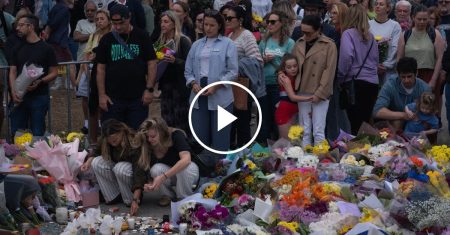Navigating the Path to Palestinian Statehood
The decades-long Israeli-Palestinian conflict remains one of the world’s most intractable geopolitical challenges, with profound implications for regional stability and human suffering. At its core, the Palestinian aspiration for statehood represents a legitimate desire for self-determination, dignity, and sovereignty. However, this legitimate goal has been repeatedly undermined by extremist ideologies that prioritize Israel’s destruction over Palestinian state-building. A realistic assessment of history and current dynamics suggests that Palestinian statehood can only materialize when there is a definitive abandonment of eliminationist rhetoric and violence directed at Israel. This isn’t merely a concession to political reality but a necessary recalibration that would benefit Palestinians themselves, allowing energy and resources to be directed toward building the institutions and economic foundations necessary for a viable state.
The historical record reveals a pattern of missed opportunities, where Palestinian leadership has rejected multiple proposals for statehood, including the 1947 UN Partition Plan and subsequent peace offers, often maintaining maximalist positions that proved self-defeating. While Israeli policies, particularly regarding settlements, have created serious obstacles to Palestinian statehood, they cannot explain the consistent rejection of compromise solutions over decades. Organizations like Hamas and Islamic Jihad explicitly prioritize Israel’s destruction in their founding charters and operational philosophies, diverting resources from state-building to military confrontation. This approach has yielded devastating humanitarian consequences for Palestinians while failing to advance their national aspirations. The October 7, 2023 attacks and subsequent war in Gaza represent the latest tragic chapter in this cycle, where violence against Israeli civilians further distances the prospect of Palestinian sovereignty.
The international community’s approach has sometimes inadvertently reinforced maximalist positions by failing to hold Palestinian leadership accountable for rejectionism and by maintaining ambiguity about Israel’s permanence. Foreign aid, while necessary for humanitarian purposes, has too often subsidized corrupt governance and militarization rather than sustainable development. The refusal to acknowledge Israel’s legitimacy as the Jewish national homeland has been reinforced in Palestinian educational systems and official rhetoric, creating generations socialized to view Israel’s existence as a temporary historical anomaly rather than a permanent reality with which accommodation must be reached. This perspective, while emotionally satisfying to some, has proven catastrophic in practice, leading to repeated cycles of violence without meaningful progress toward Palestinian self-determination.
What would a revised approach entail? First, Palestinian civil society and leadership would need to explicitly accept Israel’s permanence and legitimacy as the Jewish national homeland, abandoning both violent and diplomatic efforts aimed at its demographic or political dissolution. Second, educational systems and official rhetoric would need fundamental reform to prepare future generations for coexistence rather than perpetual conflict. Third, governance institutions would require transformation, prioritizing transparency, accountability, and economic development over resistance ideology. Fourth, regional powers and international donors would need to condition support on these substantive changes rather than enabling dysfunctional status quo politics. This approach recognizes that Palestinian statehood is not merely a matter of Israeli concessions but requires internal Palestinian reform and realistic assessment of geopolitical realities.
Critics might argue this approach places disproportionate responsibility on the Palestinian side while minimizing Israel’s obligations. However, this misunderstands the fundamental dynamic: Israel, whatever its flaws and policy mistakes, exists as a functioning state with tremendous military, economic, and diplomatic capabilities. Its willingness to accept Palestinian statehood will inevitably be conditioned on security guarantees and recognition of permanence – demands that any sovereign state would make when negotiating with former adversaries. The asymmetry in power between the parties means that Palestinian strategy must account for reality rather than wishful thinking. This doesn’t absolve Israel of responsibility for removing obstacles to Palestinian statehood, particularly regarding settlements and movement restrictions, but recognizes that such Israeli concessions will only materialize in a context of mutual recognition and security assurances.
The path forward requires courage and honesty on all sides. Palestinians deserve self-determination and statehood, but this worthy goal has been repeatedly undermined by the embrace of eliminationist ideologies that produce only suffering and failure. Acknowledging Israel’s permanence isn’t surrender but liberation from a destructive fantasy that has held Palestinian national aspirations hostage for generations. Similarly, Israelis must recognize that their long-term security and democratic character depend on resolving the conflict through a two-state solution. The international community’s role should be to incentivize this mutual recognition rather than enabling maximalist positions. Only when Palestinians fully embrace state-building over Israel’s destruction, and Israelis recognize Palestinian national rights, can both peoples achieve the security, dignity, and self-determination they deserve. The alternative is perpetuation of a conflict that has already claimed too many lives and thwarted too many dreams.










